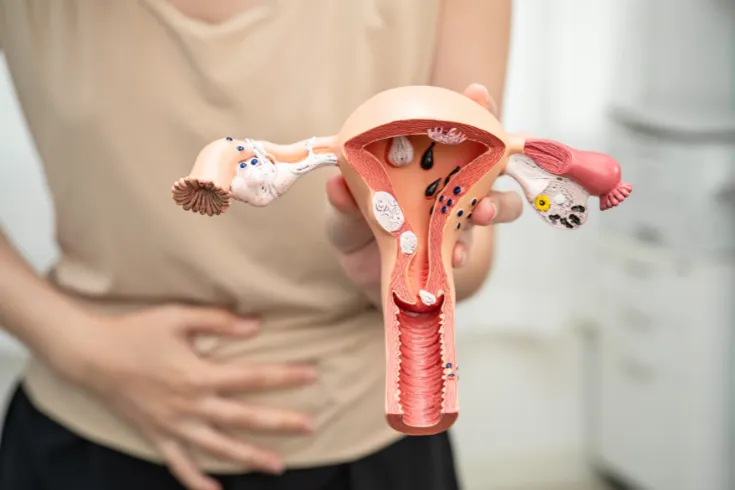Abnormal Bleeding
Abnormal bleeding is the uterine or vaginal bleeding that is unusually frequent, heavy in volume, longer in duration, or irregular in timing, occurring outside normal menstrual periods or at time after menopause.

Symptoms can include
➔Heavier or prolonged bleeding: Bleeding that lasts for more than seven days or requires changing pads or tampons more than once an hour.
➔Irregular bleeding: Spotting or bleeding between periods or bleeding after sex.
➔Unusual cycle length: Cycles shorter than 21 days or longer than 35 days.
➔Bleeding after menopause: Any vaginal bleeding after you’ve stopped having periods.
Potential Causes of AUB
➔Uterine conditions: Fibroids (noncancerous growths that happen in the uterus), polyps (growths in the uterine lining), or adenomyosis (where uterine lining tissue grows into the uterus’s muscle).
➔Hormonal changes: Conditions like PCOS (Polycystic Ovary Syndrome) or hormonal imbalances could also be factors contributing to AUB.
➔Medications: Birth control, blood thinners, and certain other medications may potentially increase the risk of AUB.
➔Infections and other issues: Infections, some blood disorders, or stress can lead to AUB.
Meet Our Doctor

Dr. Shivani Chandan L
Accomplished Gynaecologist and Laparoscopic Surgeon
